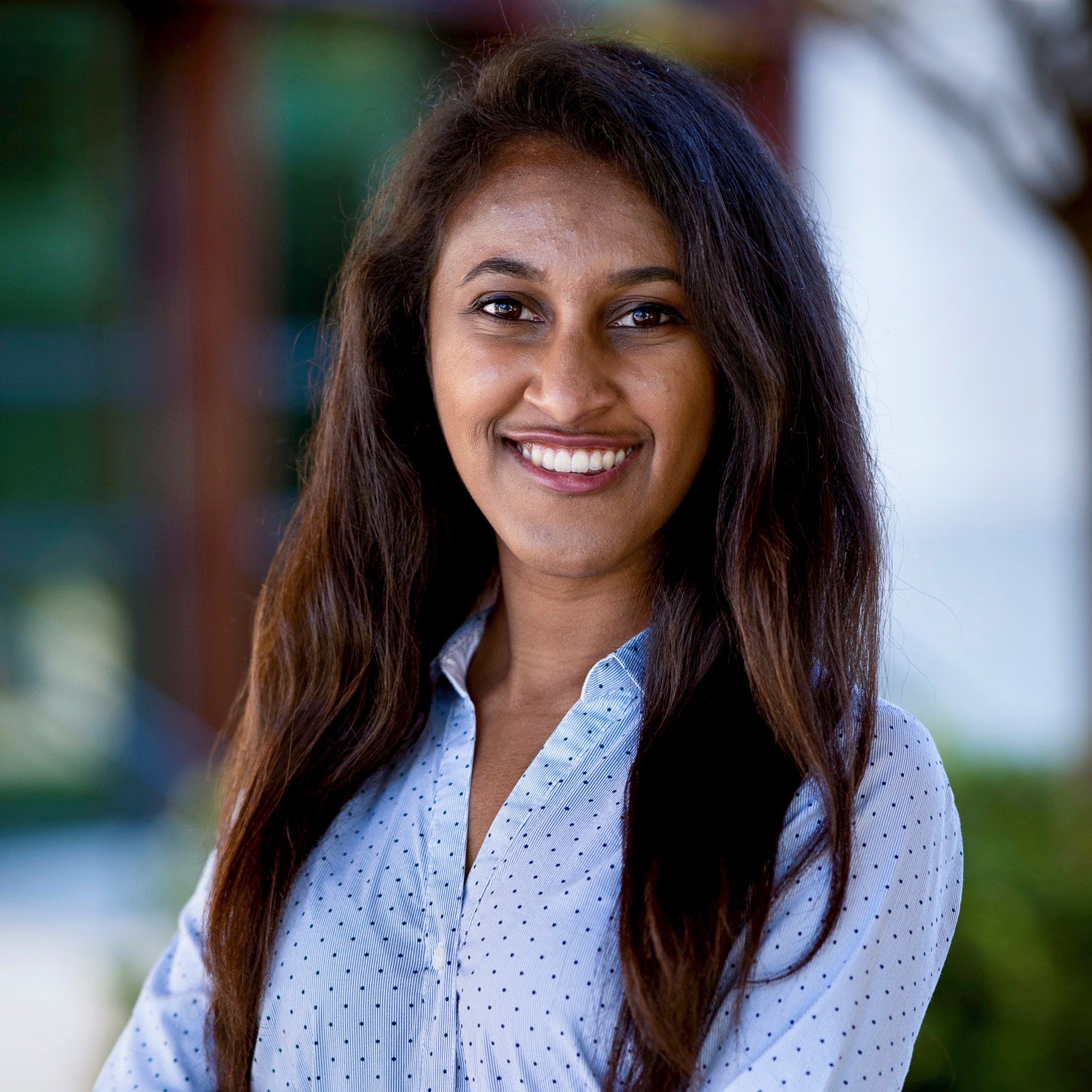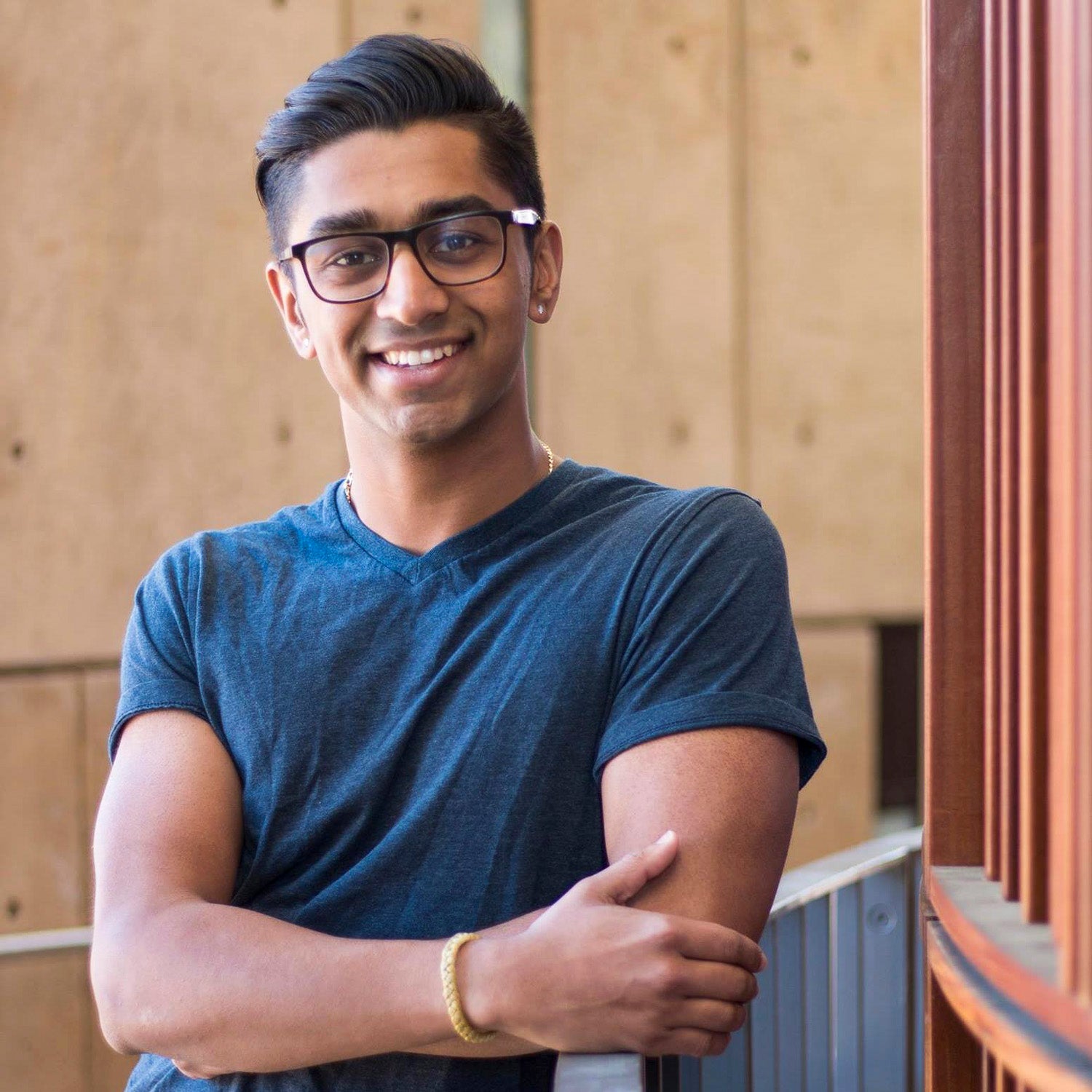Two Stanford seniors named 2019 Marshall Scholars
Seniors Deepti Kannan and Aneesh Pappu have been named Marshall Scholars and will use the scholarships for graduate study in the United Kingdom.
Two Stanford seniors – Deepti Kannan, who is studying engineering physics, and Aneesh Pappu, who is studying symbolic systems – will head to England next year as 2019 Marshall Scholars.
Each year, up to 40 Americans are chosen to receive Marshall Scholarships, which provide recipients the opportunity for graduate study in any field for up to three years at a university of their choice in the United Kingdom.
The scholarship was established to strengthen the enduring relationship between the British and American peoples, their governments and their institutions, and to enhance the intellectual and personal growth of scholars. The scholarship is named for former U.S. Secretary of State and Army Gen. George Marshall, who formulated the Marshall Plan to aid economic development in Western Europe after World War II.
Deepti Kannan
Deepti Kannan, 21, of Saratoga, California, is an honors student in engineering physics.

Deepti Kannan (Image credit: Courtesy Deepti Kannan)
As a Marshall Scholar, Kannan hopes to pursue a Master of Philosophy by research degree in chemistry, followed by a Master of Advanced Study degree in Part III of the Mathematical Tripos – both at the University of Cambridge in England.
In her Marshall application, Kannan said the degrees will train her in two complementary approaches to solving problems in theoretical biophysics – simulation and theory.
“I am extremely grateful for this opportunity to continue pursuing my passion for biophysics at Cambridge while also engaging in the university’s rich choral tradition,” she said. “Above all, I want to thank the mentors, family and friends who supported me through the application process, especially John Pearson and Diane Murk from the Bechtel International Center.”
Kannan is working on her honors thesis, “Physical Modeling of Chromatin with Heterogeneous Nucleosome Spacings,” in the Spakowitz Research Group of Andrew Spakowitz, an associate professor of chemical engineering and of materials science and engineering. The lab is engaged in projects that address fundamental chemical and physical processes that underlie a range of key biological mysteries and cutting-edge materials applications.
Kannan is a co-author of several journal articles, including “Immune Oncology, Immune Responsiveness and the Theory of Everything,” published in the Journal for ImmunoTherapy of Cancer in June 2018.
At Stanford, Kannan is the co-founder and co-president of Physics Undergraduate Women and Gender Minorities at Stanford, a group whose twofold mission is to promote diversity in physics by uniting and uplifting minority voices, and to provide opportunities for personal, academic and career development. She also served as the vice president of internal affairs for the Stanford Society of Women Engineers.
She has also performed as an alto singer with Stanford University Singers, a select concert choir that performs a broad range of Western classical music, and Stanford Harmonics, a student a cappella group that performs indie and alternative rock.
Aneesh Pappu
Aneesh Pappu, 21, of Pullman, Washington, is studying symbolic systems, a major that encompasses computer science, philosophy, linguistics and psychology.

Aneesh Pappu (Image credit: Courtesy Aneesh Pappu)
As a Marshall Scholar, Pappu hopes to pursue a Master of Science degree in comparative social policy at the University of Oxford, and a Master of Philosophy degree in machine learning and machine intelligence at the University of Cambridge. Through the degree programs he aims to explore how to create fair and ethical information technologies.
Pappu said he was grateful to family, friends and mentors – in his hometown and at Stanford – for their support throughout the years.
“I couldn’t imagine having an opportunity like this without all of the people who have cheered me on from day one,” he said. “I’m especially grateful to the staff of the Overseas Resource Center at Stanford for the incredible support they gave me during the scholarship application process.”
At Stanford, Pappu served as a computer science research assistant in the laboratory of Vijay Pande, a professor of structural biology and computer science. Pappu is a co-author of several journal articles with the Pande Lab, including “MoleculeNet: A Benchmark for Molecular Machine Learning,” published in Chemical Science in January 2018.
Pappu served as a resident computer consultant in Twain House, a first-year residence hall, from August 2017 to June 2018. In addition to teaching an introductory course on computing, he organized programs on emotional and mental health. He was also a member of Stanford Basmati Raas, a co-ed, 16-member Indian dance team that competes across the country in a form of dance known as Garba Raas.
Currently, Pappu is a counselor and the nonprofit fundraising coordinator of the Stanford chapter of Camp Kesem, a weeklong summer camp and year-round community for children whose parents have or have had cancer.
International scholarships
Stanford students interested in overseas scholarships and Stanford faculty interested in nominating students for such awards should contact Diane Murk, manager of the Overseas Resource Center at dmurk@stanford.edu, or John Pearson, director emeritus of the Bechtel International Center, at john.pearson@stanford.edu.
